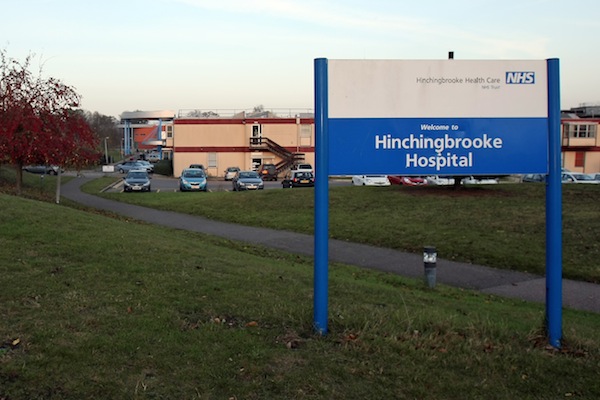Her Majesty’s Comptroller and Auditor General seems to have been nicking ideas from Private Eye. National Audit Office reports these days arrive with a frontispiece of ‘key facts’, reminiscent of the Eye’s ‘number crunching’ feature, plucking a handful of noteworthy numerals from the deluge of auditry that follows, and designed presumably to make the reader go ‘gosh’.
In the NAO’s latest report, on the awarding two years ago of a franchise to run a hospital in Cambridgeshire, one ‘key fact’ leaps out. ‘£0’, it says, ‘is the amount Circle will earn over the ten-year life of the franchise, unless the Trust achieves a surplus under its management’. Yes, that’s right. Unless Circle – the part employee-owned private company that won the franchise – manages to turn the deficit-drained Hinchingbrooke’s finances round and put it into the black, they themselves won’t profit a bean from the deal. The NAO is satisfied that there has been a proper transfer of risk to Circle. After all the horror stories of hospital PFI, and the catastrophe of the West Coast mainline franchise, here at last seems like a bit of good news, however small, for the taxpayer.
Not that the NAO is totally wowed by the Hinchingbrooke deal: the day it spots perfection in the management of the public finances will be the day Ed Balls says sorry. It is critical of the Department of Health and Treasury for taking a year to sign off the arrangement – a year in which several million quid more was added to Hinchingbrooke’s mounting pile of debt. However, the main essence of its concern is that the level of savings Circle promise from their management of the hospital is ‘unprecedented’ and that they, the NAO, cannot know whether these will or will not be achieved. This is true. No one does know.
‘Unprecedented’, funnily enough, is the word often applied to the £20 billion overall target for productivity savings from the NHS in England under the four year plan being overseen by its chief executive, the former Communist Party member Sir David Nicholson. Nicholson’s plan implies 4 per cent annual savings, while the Circle team are promising 5 per cent, so on this measure capitalism trumps communism, though the point is that they might both be talking out of their hat. Certainly the angst expressed by the NAO that Circle could have over-reached themselves is nothing next to the near-conviction on Planet NHS that the Nicholson target won’t be met.
What we do know from long experience is that if the £20 billion isn’t delivered, not a lot will happen. Andy Burnham will put out a press release. Ministers will be roughed up a bit in the Commons and Sir David might receive one of Margaret Hodge’s headmistressy dressing-downs in front of the Public Accounts Committee. Then he’ll come up with another plan and be sent away, salary and pension intact, to carry it out (or not as the case may be). On the other hand, if Circle don’t make their numbers, they won’t make any money. I wonder therefore which of the two figures is the more likely to be achieved.
Putting it this way, of course, leaves one wide open to the attack from the unions and the left that Circle will destroy services at the Hinchingbrooke and put people out of work in order to secure their profit. So far it hasn’t happened. Hinchingbrooke used to have the worst A&E department in the area; now it has the best. It has started to meet its waiting time standards for cancer treatment more often than not, having previously consistently failed to do so. In May this year it achieved the joint top score among the region’s hospitals for patient satisfaction, though it has since fallen back from that high. In other words, since Circle took over the hospital in February they have started to make progress on the clinical and service front. Worryingly, however, they are also way off against their projection for the level of the financial deficit this year and this may turn out to be the most significant of the NAO’s findings.
It may prove impossible to pull the finances of a small hospital with ‘legacy issues’ (including an earlier, unrealistic, PFI deal) like Hinchingbrooke round. In future we will need its kind of small hospital less, so that there comes a point where a freestanding unit of this type, no matter how efficiently run, cannot get the income to cover its costs. However, the place had been in dire straits for years, and the NAO is right to acknowledge that an innovative approach was worth a shot. At least the dreary catechism of nationalising losses and privatising gains, which has characterised the conduct of our finances ever since Northern Rock, has been ignored in this one, small, case.
Richard Marsh is a former special adviser to two Conservative Secretaries of State for Health.






Comments